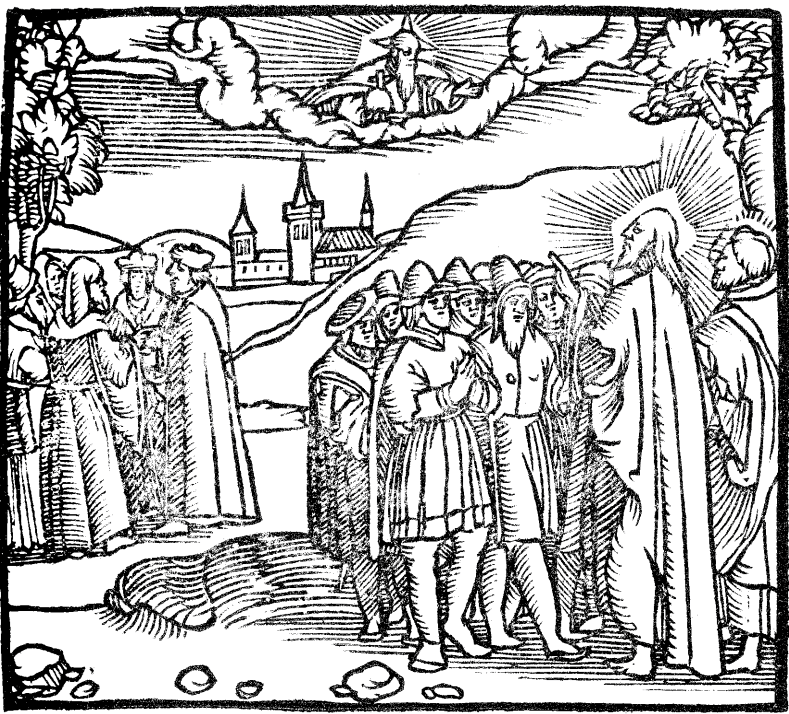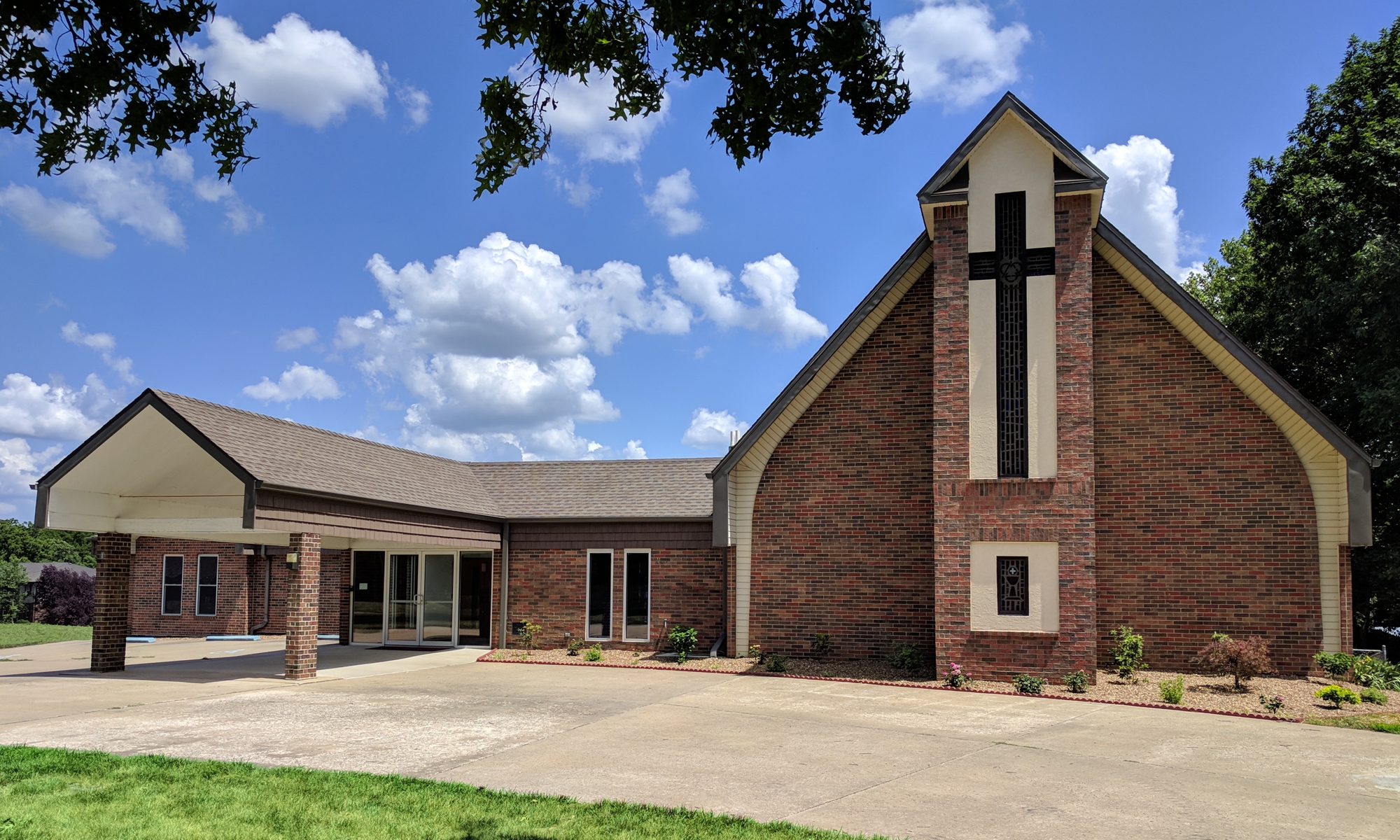
Lessons: Deuteronomy 10:12-21, 1 Corinthians 1:1-9, Matthew 22:34-46
Hymns: LSB 579, 708, 694, 634, 580
Grace, mercy, and peace to you from God our Father and our Lord and Savior, Jesus Christ. Amen
Today’s Gospel takes place during Holy Week. On that Sunday, Jesus rode into Jerusalem on a donkey to the praise of the crowds. The children continued singing their praises to Jesus. In fact, the chief priests and scribes were offended when the children sang the beautiful words, “Hosanna to the Son of David,” meaning that Jesus is the Savior who was to come—the very Messiah. The chief priests and scribes didn’t believe in Jesus as the Messiah, so they found these words of the children to be repulsive to their ears. They wanted Jesus to correct the children, so they asked Jesus, “Do you hear what these are saying?” And Jesus said to them, “Yes; have you never read, ‘Out of the mouth of infants and nursing babies You have brought forth perfect praise’?” (Matt 21:15-16).
This work of God is simply amazing—bringing children to faith in Christ, saving them, and loving them. Societies have often placed little value on children. Even parents sometimes think of their own children as leeches, for they draw resources away from the parents. Our own country has proven its contempt toward children as we have aborted 63 million babies since Roe v. Wade. Instead of recognizing it as mass murder that must be stopped, we look at abortion as but one issue among many to be weighed when considering which candidates we want to support. What evil and darkness has fallen upon us!
In contrast to this, God loves children. He created every child. We are fearfully and wonderfully made in God’s image in our mothers’ wombs. When this is understood, we will know that there is no such thing as an unwanted child, for every child is loved by God and He has even worked praise from the mouths of infants.
Many are scandalized today by the Christian’s love toward children and the Christian’s desire to protect children. Across the country, children are being manipulated into thinking they’re homosexual or transgender. Many try to get us to stop defending the lives of children as people say, “My body, my choice.” We are supposed to see the individual adult as a glorious, good, self-sustaining entity and children as needy, if not disposable.
But that could not be further from the truth. You see, nothing is uglier than sin. Our sin has made us ugly and has even blinded us to our ugliness. Jesus gets to the root of our failure to keep God’s perfect Law. He commands us to love the Lord our God with all our heart soul, and mind. We are also to love our neighbors as ourselves (Matt. 22:37-40). When we place anything before God, the hearing of His Word, or the blessings Jesus grants, we have failed to keep the Law of love. And when we have hurt our neighbors (including the ways we are harming children), we have failed keep the Law of God to love our neighbor. So much for being glorious, good, self-sustaining entities.
When we are blind to the ugliness of our sin, we are also blind to our need of the Gospel. That’s how it was for the various groups who were testing Jesus during Holy Week. Jesus silenced the liberal Sadducees who didn’t believe in a resurrection. He silenced the Herodians who wanted to rile people up against Jesus when they asked Him if it is lawful to pay taxes to Caesar or not. Jesus silenced the Pharisees who asked Him about the greatest commandment in the Law. He gave the answer they already knew. Love God and love your neighbor. Then He asked them a question. “Who is the Christ? Whose Son is He?” Our Lord was asking, “Who is the coming Messiah? From which lineage will He come?” They said, “the Son of David,” meaning they know the promise of the Savior will come from the lineage (or the house) of David, as it is written in 2 Samuel 7:12-16.
Perhaps their answer made them instantly realize they will not be able to catch Jesus in His speech, but He is catching them. After all, they were indignant at Jesus because the children were confessing Jesus as the Son of David, singing, “Hosanna to the Son of David.” Now they’re forced to reckon with Jesus who is of the house of David, who has performed many miracles (such as raising the dead man at Nain and healing the man with dropsy) and preaches with authority. He is the fulfillment of all the Old Testament prophecies concerning the promised Messiah. The children are right. “Hosanna to the Son of David.”
Last week we heard the account where the Pharisees attempt to lure Jesus into a trap as He dines with the Pharisees on the Sabbath, along with a man suffering with dropsy. He heals the sick man on the Sabbath and reveals the Pharisees’ hypocrisy as Jesus reasons with them, saying, “Which of you won’t go and rescue your animals that have fallen into a pit on the Sabbath? Wont you also love your neighbor?”
In today’s Gospel, Jesus further exposes the Pharisees by quoting Psalm 110, which was written by King David. In that psalm, David is confessing the Messiah to be Lord who will sit at the right hand of the Father. No one would ever consider a descendant to be that person’s lord. And yet David is calling his descendant “Lord.” Jesus asks the Pharisees why this is so. They didn’t answer Jesus, because it revealed the inconvenient truth that the children were correct for singing their Hosannas to Jesus.
This revealed a gaping hole in their line of thinking. The religious system established by the Pharisees was that of self-righteousness. They thought they did a good job of keeping the Law. In fact, they figured they were so good at keeping the commandments of God, they added more rules and regulations to abide by. Many were impressed by the righteousness of the Pharisees. They did not know how ugly their sin was, for their sin had blinded them of their ugliness. They thought they were able to show the world pure beauty, but deep down they were corrupt with sin.
They thought they were beautiful, being clothed in their own righteousness. But the Bible describes our own righteousness as filthy rags (Isaiah 64:6). There’s no beauty in filthy rags. It is no glorious dress.
In their blindness, they did not see the beauty of Christ’s love and His perfection. They did not see that they could be clothed in the very righteousness of Christ and be made beautiful by Him.
Dead set on killing Jesus, they press on toward their goal. Judas is paid 40 pieces of silver to betray Jesus. Jesus is arrested, put on a false trial, beaten and insulted, and nailed to a tree.
We could not be more beautiful than when we’re covered in Christ’s very righteousness. And yet Jesus is bloodied to a pulp and crucified. The Bible says, “His appearance was so marred, beyond human semblance, and his form beyond that of the children of mankind… He had no form or majesty that we should look at him, and no beauty that we should desire him. He was despised and rejected by men, a man of sorrows and acquainted with grief… The Lord has laid on him the iniquity of us all” (Isaiah 52:14, Isaiah 53:2-6).
All our sin—and the ugliness of our sin—was placed on Jesus. God our Father accounted Jesus as the Sinner so that we can be forgiven of our sin and cleansed of all unrighteousness. Therefore, St. Paul describes the church of God as “sanctified in Christ Jesus” (1 Cor. 1:2) and announces that Christ Jesus will sustain His Church to the end, declaring us “guiltless in the day of our Lord Jesus Christ” (1 Cor. 1:8).
The ugliness of our sin is replaced with righteousness of Christ. We are washed, justified, and sanctified by Him. We are cleansed and purified. We are declared innocent and holy.
On our own, we would remain filthy sinners. But in Christ, we no longer appear filthy for that filth was placed on Jesus who buried it in the tomb. As Christians, we are presented to our Father in Heaven as glorious.
In Ephesians 5:21-33, St. Paul takes up the topic of marriage and the roles of husbands and wives. He speaks of a mystery concerning Christ and His bride the Church. This is what Jesus, our Bridegroom, does for the Church, which includes us: “[Jesus sanctifies] her, having cleansed her by the washing of water with the word, so that he might present the church to himself in splendor, without spot or wrinkle or any such thing, that she might be holy and without blemish.”
Through this ongoing work of God as the Holy Spirit works faith in us through the Word and Sacraments, this is how we appear before our Lord as beautiful. The Pharisees tried so hard to make themselves appear beautiful before God and the world. And while mankind saw beauty in their charades and shows of good, God saw right through it. Jesus declared that our righteousness must exceed that of the scribes and Pharisees (Matt 5:20).
And our righteous certainly exceeds the righteousness of all the good works of mankind when we have put on Christ—when we are baptized into Christ—when we receive the Body and Blood of Christ for our forgiveness. The ugliness of our sin is no longer seen by God our Father. Instead, He sees us as beautiful, without spot or blemish. He deems us acceptable in His sight and ready to be received into the gates of Paradise.
All of this is ours by grace through faith—faith which God the Holy Spirit works in people of all ages, from infants to the elderly. And in Christ, we are nothing but beautiful. Amen.
The peace of God which passes all understanding keep your hearts and minds in Christ Jesus to life everlasting. Amen

